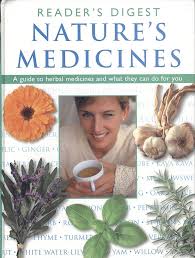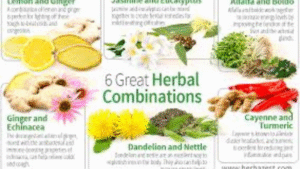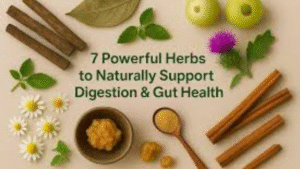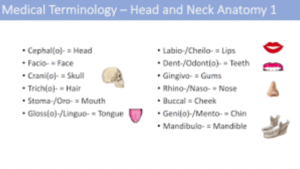Why Natural Medicines Are Gaining Popularity

You know what? It seems like everywhere you look, someone’s sipping on herbal tea or talking about turmeric lattes. Honestly, it’s more than just a trend or something your cousin shares on Facebook—it’s a shift in how people think about health. Natural medicines are about caring for your body in a holistic way, not just popping a pill and hoping for the best.
Think about it—how many times have you felt stressed, tired, or just “off,” and the usual prescription didn’t quite hit the mark? Herbs, teas, and tinctures often offer something a little gentler. They’re part of holistic medicine, part comfort ritual, and, let’s be honest, part self-care. Herbal remedies aren’t about replacing modern medicine entirely; they’re about complementing it. And yes, natural medical doctors and natural healing doctors can guide you through this maze.
A Historical Look at Herbal Remedies and Natural Medicines

Here’s the thing: herbs aren’t new. People have been using them for thousands of years. Ancient Chinese practitioners had entire texts devoted to herbal medicine. Egyptians weren’t just about pyramids—they mixed oils and herbs for healing. Even here in North America, Indigenous communities relied on echinacea, willow bark, and sage to treat everything from minor cuts to colds.
Honestly, some of this knowledge was passed down orally for generations, like family recipes, and it’s still relevant. Modern research often confirms what our ancestors already knew: turmeric can reduce inflammation, ginger can ease nausea, and chamomile can help you sleep. So, alt medicine is a blend of tradition, culture, and science catching up.
So, What Are Herbs Really?

Let me explain. Herbs are parts of plants—roots, leaves, flowers, seeds—with healing properties. Unlike modern pharmaceuticals, which usually focus on one specific symptom, herbal remedies often support your entire body. Think of it like a jazz band rather than a solo singer—each instrument contributes to the overall harmony.
Forms You’ll Actually Use
-
Teas & Infusions: Warm, calming, and sometimes ritualistic. Ever notice how sipping chamomile feels like a mini escape from the day?
-
Tinctures & Extracts: Concentrated drops you can easily adjust. A little goes a long way.
-
Capsules & Tablets: Straightforward and convenient. No fuss, just consistency.
-
Topicals: Creams and oils for sore muscles, skin irritations, or joints. You might even enjoy the process of rubbing them in—it feels intentional, like self-care you can feel.
Common Herbal Helpers
-
Chamomile: Calms nerves, soothes digestion, and helps with sleep.
-
Turmeric: Anti-inflammatory and antioxidant powerhouse. Bright, bold, and useful in dishes too.
-
Ginseng: Energy booster, keeps your brain sharp.
-
Ginger: Eases nausea and digestion, adds a little spice to life—literally.
-
Echinacea: Immune system’s cheerleader during cold season.
Honestly, a natural medical doctor can help match the right herb to your lifestyle and needs, instead of you just guessing.
Why Herbs Can Be Game-Changers
1. Supporting Your Body’s Own Healing
You know what’s fascinating? The body can often heal itself if given the right support. That’s what natural medicines are all about. Turmeric doesn’t just mask pain; it reduces inflammation. Ginger helps your digestive system run more smoothly. Chamomile helps your nervous system relax, which in turn helps your gut and your sleep. It’s a domino effect, a little ripple of wellness.
2. Gentler Side Effects
Pharmaceuticals can do wonders, sure—but they often come with side effects like nausea, fatigue, or organ strain. Herbal remedies are usually gentler. Ginger for nausea, chamomile for sleep—most people tolerate them well. Here’s the thing: even “natural” doesn’t mean risk-free, especially when combined with medications. That’s why having a natural healing doctor guide you matters.
3. Mental and Emotional Benefits
Ever brewed some lavender tea and felt a little less tense? Herbs aren’t just physical—they’re emotional. They give you a pause, a moment to slow down, to breathe. They’re subtle, sensory helpers. The smell, the warmth, the taste—it all contributes to a small, yet powerful, sense of calm. Holistic medicine takes this seriously: mind and body aren’t separate, they’re intertwined.
Limitations and Considerations in Alt Medicine

Let me be honest. Herbs aren’t a cure-all. There are boundaries, and knowing them keeps you safe.
1. Quality Varies
Unlike a pill that has a consistent milligram count, herbs depend on soil, climate, and harvest. One batch might be potent; another might be weak. That’s why it’s important to trust reputable suppliers and natural medical doctors who understand these variations.
2. Interactions Happen
Some herbs can interact with medications. St. John’s wort, for example, can affect antidepressants. Ginkgo biloba may increase bleeding if combined with blood thinners. A natural healing doctor can help you navigate safely, so you’re not left guessing.
3. Serious Conditions Need Conventional Support
If you’re dealing with infections, heart disease, or cancer, herbs alone won’t do it. They can support treatment, yes, but shouldn’t replace professional medical care. This is alt medicine working in tandem, not solo.
Herbs vs. Conventional Medicine

Here’s the thing: herbs are fantastic for stress, minor inflammation, digestion, or sleepless nights. Ginger tea after a heavy meal? Chamomile at bedtime? Perfect.
But acute illnesses, serious infections, or chronic diseases? Conventional medicine often wins. The trick is knowing when to use each, or both together. That’s where a natural medical doctor can help integrate holistic medicine with modern treatments.
Profiles of More Popular Herbs
Lavender
Calms nerves, reduces mild anxiety, helps with sleep. Often used in teas, essential oils, and even candles.
Peppermint
Refreshes, eases digestion, relieves bloating. Peppermint tea or oils are great after a spicy meal.
Rosemary
Anti-inflammatory, aromatic, possibly helps with memory. Adds flavor to food and focus to your mind.
Holy Basil (Tulsi)
Balances stress, supports immunity. A classic in Ayurvedic alt medicine.
Ashwagandha
Helps with stress, fatigue, and anxiety. Adaptogenic, often found in capsules or teas.
Cinnamon
Supports digestion and blood sugar balance. Warm, comforting, and familiar—think holiday desserts or morning oats.
Hawthorn
Supports heart health and circulation. Traditionally used for centuries.
Mini Case Studies
-
Stress & Sleep: Jane, 42, struggled with insomnia. Chamomile tea, lavender aromatherapy, and evening journaling improved her sleep dramatically.
-
Digestive Upset: Tom, 35, often bloated after meals. Ginger tea post-dinner and peppermint in the morning eased discomfort.
-
Joint Pain: Mary, 60, managed osteoarthritis with turmeric capsules, gentle stretching, and anti-inflammatory diet guidance from her natural healing doctor. Pain decreased, mobility improved.
You see, herbs work best as part of a thoughtful routine, not a quick fix.
Seasonal Considerations
-
Winter: Echinacea, ginger, cinnamon—warmth and immunity support.
-
Spring: Milk thistle and dandelion for liver support and detox.
-
Summer: Peppermint and lemon balm cool digestion and refresh the body.
-
Fall: Ashwagandha and turmeric help combat seasonal fatigue and stress.
Herbs can be in sync with the seasons, which makes holistic medicine feel more connected to nature and daily life.
Using Herbs Safely

-
Pick Quality: Lab-tested, standardized products.
-
Consult Experts: Natural healing doctors can guide use safely.
-
Respect Dosage: Too much—even of a gentle herb—can backfire.
-
Listen to Your Body: Stop if something feels off.
-
Combine Thoughtfully: Herbs plus diet, movement, and conventional care.
Honestly, even small rituals like brewing chamomile at night can be powerful. It’s about intention, routine, and self-care.
Deciding Between Herbs and Medicine
Do you reach for tea or a pill when stress hits? Honestly, it depends. Severity, timing, and personal comfort matter. Often, a combination is ideal. Holistic medicine, alt medicine, and conventional care together create a balance. A natural medical doctor can orchestrate this safely.
Conclusion
Natural medicines aren’t replacements for professional care, but they can enhance wellness and mood. Guided by natural healing doctors or natural medical doctors, herbal remedies provide centuries of wisdom, practical science, and small rituals that make caring for yourself feel human again.
Next time you sip chamomile or sprinkle turmeric, remember—you’re not just flavoring your food or drink. You’re connecting with history, culture, and a thoughtful approach to your health.
FAQ Section
1. Can herbal remedies replace prescription medicine?
Rarely. They complement, but never replace. Always consult a natural medical doctor.
2. Are herbal remedies safe for everyone?
Not necessarily. Age, medications, and health conditions matter. Ask a natural healing doctor.
3. How do I find a certified natural healing doctor?
Look for licensed practitioners specializing in holistic medicine, alt medicine, and natural medicines.
4. What herbs help with common ailments?
Chamomile, ginger, turmeric, ginseng, echinacea, peppermint, lavender. These herbal remedies are widely studied.
5. Can I combine herbs with medications safely?
Yes, but only under guidance from a natural medical doctor or natural healing doctor.









